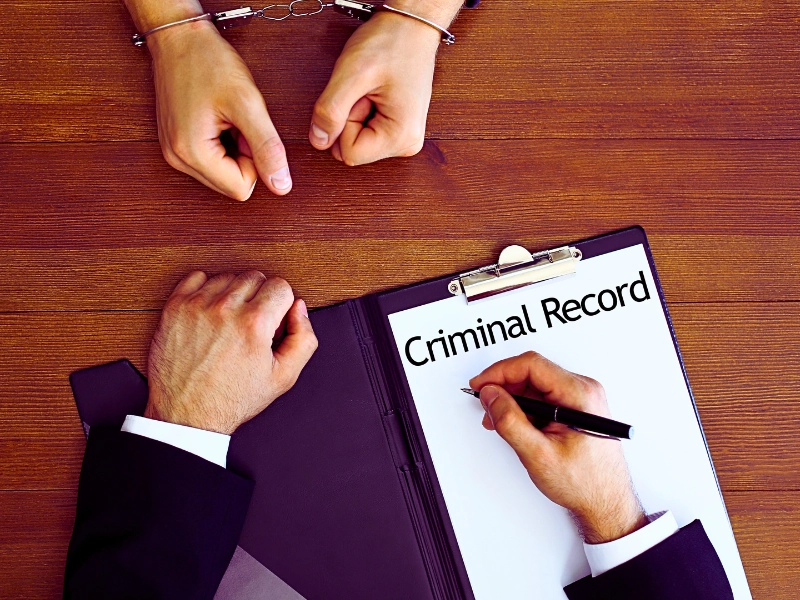People with prior convictions and facing new charges may wonder, “Can a criminal record impact new charges in Minnesota?” Having a criminal record can influence how the prosecution and court will handle your current charges. The court may deny your bail request or impose strict conditions. It may also impose harsh penalties. The prosecution, on the other hand, may be reluctant to give you a favorable plea deal if you have a prior conviction for a similar or related offense.

A criminal defense lawyer can discuss how your past criminal offenses will impact your current legal situation. The lawyer can then walk you through all available defense options and determine the best one for your situation. So, be sure to seek legal help as soon as you are charged with a new crime.
Criminal defense lawyers at Keller Criminal Defense Attorneys are on standby to defend you aggressively against your new criminal charges. Call us at (952) 913-1421 for legal support.
On This Page
Prior Convictions Can Increase Penalties for New Charges
Understanding the impact of a criminal record on new charges is crucial to any individual arrested for a repeat criminal offense. Having priors may aggravate your current legal situation in various ways, including:
Increased Sentencing Severity
You are likely to face an enhanced sentence for your new crime if you’ve been previously convicted of a similar crime. Minnesota laws allow courts to impose harsher sentences on defendants with prior convictions.
The sentencing is more severe in repeat felonies involving DUIs, criminal sexual conduct, drug-related charges, and violent crimes. Minnesota saw a drop in violent crime rates in 2024. However, most of the violent crimes committed were repeat offenses.
The Minnesota Sentencing Commission (MSC) creates the sentencing guidelines used in criminal cases. The severity of the crime is the primary factor that courts consider when issuing sentences. The court also considers the defendant’s criminal history score.
The MSC uses factors, such as prior felonies, prior misdemeanors or gross misdemeanors, and custody status at the time of the crime, to determine a criminal history score. It also considers prior juvenile arrests.
Aggravating Factors
Previous convictions are aggravating factors to newly committed crimes. An aggravating factor is an act or statement by the defendant that indicates the likelihood of committing a criminal offense. You might, for instance, get harsher penalties and sentencing if you have a prior physical assault conviction and are currently facing new assault charges.
Besides a harsh sentence, you may also suffer the hidden costs of a criminal record. Prior convictions can affect your personal and professional life. Employers and landlords perform background checks before hiring or renting out property. You may struggle to find a job or house if you have a criminal record.
Does a Criminal Record Influence Bail and Court Decisions?
A bail is a fee that an arrested suspect pays the court in exchange for getting released from jail pending a court hearing. In simple terms, it’s a financial contract that one enters with the court. It guarantees that the defendant will attend every court session and avoid criminal acts while out on bail.
Before granting bail, the court considers the defendant’s likelihood to show up for the next court hearing. It also evaluates how the released suspect may impact public safety. Prior crimes and a history of delinquent acts can influence the bail decisions. You may have to pay a higher bail amount. What’s more, your bail request may be denied if the court considers you a safety or flight risk based on your prior convictions.
Why You Need a Criminal Defense Lawyer If You Have Priors
How long do you have to get a criminal defense lawyer? Minnesota does not impose strict deadlines for hiring a criminal defense lawyer. It is, however, wise to get a lawyer involved as early as possible, especially if you have prior convictions. Your lawyer will ensure you understand how your criminal record impacts various aspects of your new charges. The lawyer will also work tirelessly to help you get a more favorable result by doing the following:
Representing You at Bail Hearings, Plea Negotiations, and Trial Proceedings
A seasoned criminal defense lawyer can represent you at a bail hearing, plea negotiations, and trial proceedings. The lawyer can present evidence-backed arguments to convince the court that you are neither a threat to the public nor a flight risk. He or she can also convince the court to release you without strict conditions, such as court-ordered check-ins or house arrests.
Handling Criminal Record Expungement
Details about your prior arrests, offenses, and convictions are available in various databases. Circumstances that require background checks may reveal your priors. Fortunately, Minnesota laws offer opportunities for expunging or sealing criminal records.
Your lawyer will help you understand the difference between expungement and sealing of records. The lawyer will examine your legal situation and determine if you are eligible for expungement.
At Keller Criminal Defense Attorneys, we have helped many individuals with prior convictions get positive outcomes. We can help you, too. Contact us to discuss your case with one of our criminal defense lawyers.





